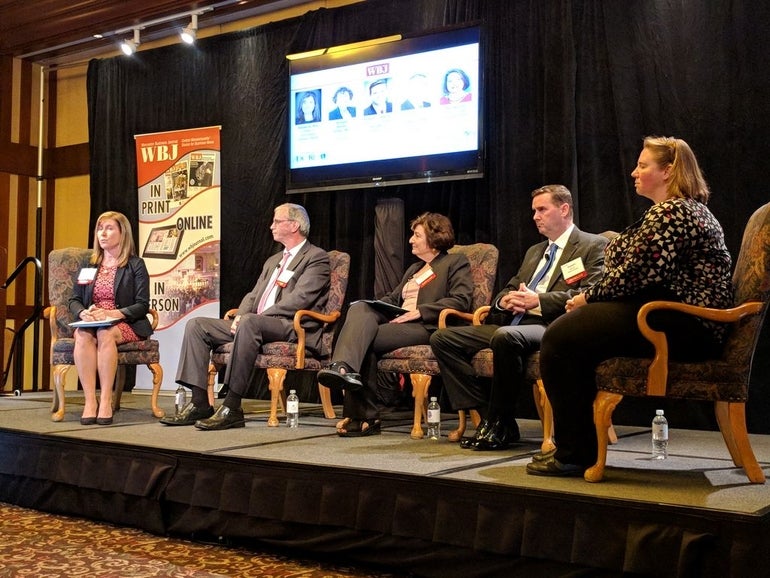Employers weighing how to deal with substance abuse issues among their workforce have a more complicated task than ever.
Opioids continue to kill far more than they did only a few years ago, including nearly 1,900 last year in Massachusetts and 77 in Worcester. In the meantime, marijuana is now legal for medicinal use and will be free for recreational use by July 1.
One poses a severe and often deadly challenge to businesses, and another a dilemma over how to deal with workers who could get high legally but still shouldn’t be showing up to work under the influence.
A public health expert, health commissioner, employment lawyer and others offered insight into how to deal with workplace addiction Tuesday at a Worcester Business Journal-sponsored event at the Beechwood Hotel in Worcester.
“It’s great to see employers as part of the solution to this issue,” said Michael Botticelli, the executive director of the Grayken Center for Addiction at Boston Medical Center, the event’s keynote speaker.
Botticelli ticked off statistics that illustrated the severity of the opioid epidemic: about 42,000 deaths nationally in 2016, according to the CDC. The fatal overdose rate for synthetic opioids doubled, and Massachusetts is among the top three states in the country in synthetic overdose deaths.
Opioid deaths only capture a fraction of those affected, Botticelli. For each fatal overdose, 10 go to the emergency room because of an overdose and 130 battle opioid addictions, he said.
Botticelli, a former director of the National Drug Control Policy for the Obama administration, suggested a more open culture at workplaces to help with addiction, including ending the use of terms like “junkie” to describe those with addiction. A major factor for those with opioid addiction not seeking help is a fear of what people will think, especially their employer, he said.
Employers should ensure that health insurance benefits include high-quality treatment programs, and addiction treatment should be considered a part of broader wellness programs, Botticelli said.
Four panelists also discussed how opioid addiction has forced employers to confront a still-growing health challenge that remains a stigma among many.
Progress has been made in the last few years in talking of opioid addiction as a disease, said Matilde Castiel, Worcester’s commissioner for health and human services. Officials also continue pushing for mental health treatment as part of broader opioid treatment, she said.
Robert Kilroy, a partner with the Worcester law firm Mirick O’Connell, said some employers may be reluctant to get involved in a worker’s addiction but suggested human relations officials should be consulted to ask the worker how best the company can help them be successful. He said he still sees a lack of sympathy or understanding with opioid addiction.
“All they’re seeing is misconduct,” he said.
Nicole Zea, a plant manager at Saint-Gobain in Worcester, stressed the importance of confidentiality in helping workers come forward, particularly at a more insular workplace.
“We are very close, and people tend to talk,” she said.
The panelists also gave insight on how employers might be able to best deal with a different challenge: a state law that makes marijuana legal recreationally as of July 1.
Daniel O’Connor, a community services representative with AdCare in Worcester, suggested employers treat legal pot as they do alcohol: it’s legal, but still not acceptable if it impairs a worker’s ability to do their job.
Kilroy suggested more lax drug testing in consideration of legal marijuana but said employers have reasons to want to keep workers sober on the job.
“They’re going to have a whole lot of folks who are going to test positive,” he said. If employers don’t make adjustments, he added, “you’re not going to have any applicants” remaining after drug testing.

